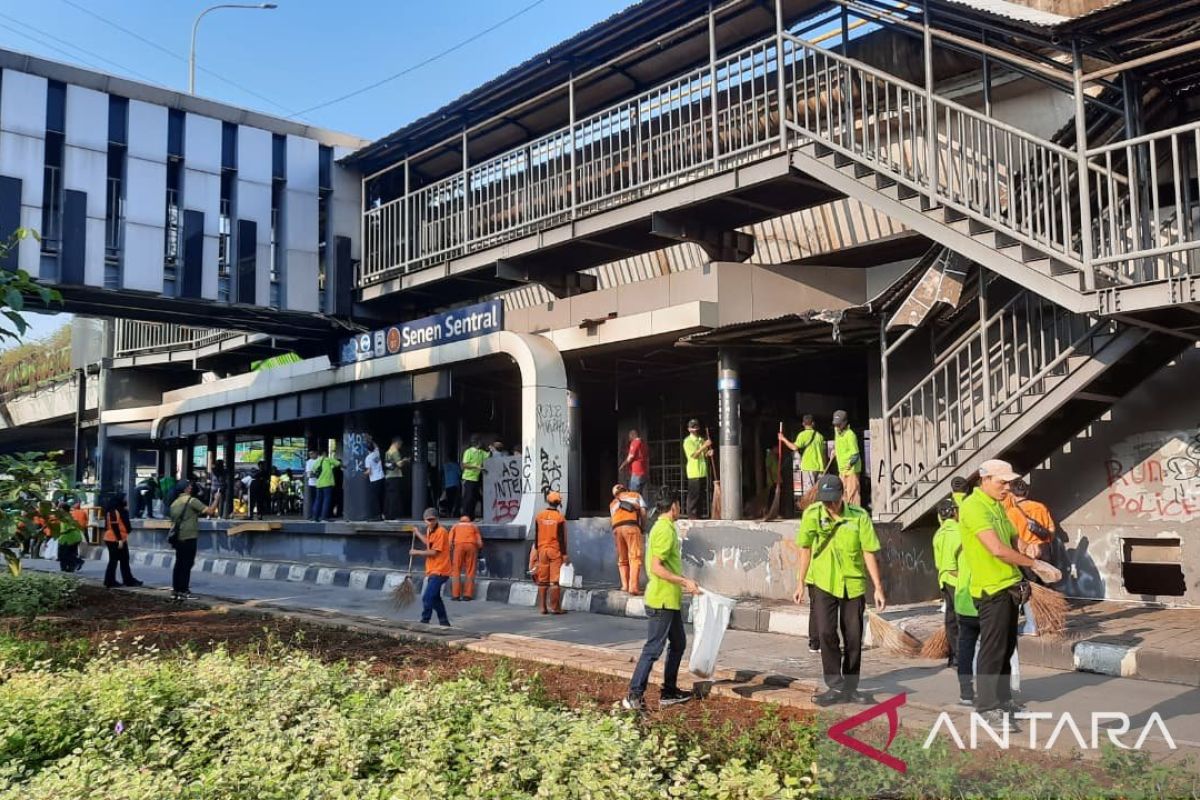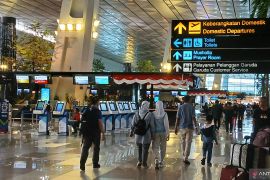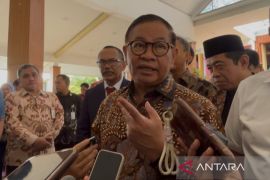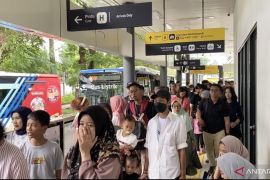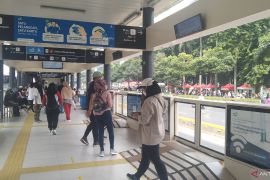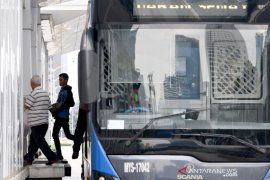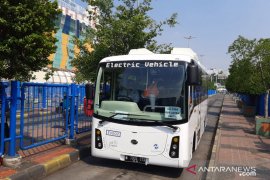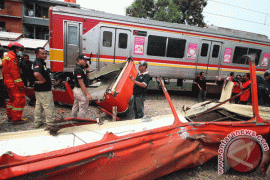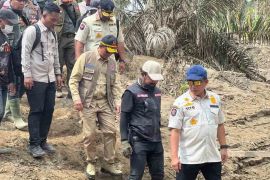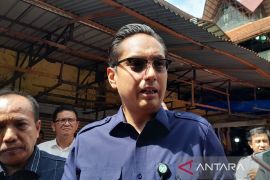Graffiti remained on walls, and cleaners worked to cover it with fresh paint. Part of the bus stop floor was still blackened by fire, surrounded by rubble from the damaged structure.
The station stood as a silent witness to mass demonstrations across Jakarta. Protesters from various groups demanded the removal of housing allowances for lawmakers in the House of Representatives (DPR).
While many gathered peacefully, chaos soon followed as some turned violent, damaging public infrastructure.
Vandals torched and destroyed bus stops, traffic lights, and surveillance cameras. The Jakarta government reported damage to at least 18 traffic lights across the city.
The Istora Mandiri MRT station entrance was also vandalized. Nine Transjakarta Bus Rapid Transit (BRT) stops were damaged, with seven—including Senen Sentral, Senayan Bank DKI, Polda Metro Jaya, and Gerbang Pemuda—set on fire.
Losses have exceeded Rp50 billion (approx. USD 3.2 million). Damage includes Rp41.6 billion to Transjakarta, Rp3.3 billion to the MRT, and Rp5.5 billion to CCTV and other infrastructure.
The destruction echoes the 2020 Job Creation Law protests, which left the city with Rp65 billion in damages, including smashed police posts, bus shelters, traffic lights, public plants, and signage.
Alongside the physical destruction, waste piled up. Jakarta’s Environmental Service reported collecting 130 cubic meters—or 28.63 tons—of inorganic trash in just two days, August 28–29.
To address the aftermath, the city launched the #JagaJakarta “Gotong Royong” (mutual cooperation) movement. The campaign mobilized city officials—from mayors to village heads—and residents to help clean up.
Rainbow Troops
The city’s “Rainbow Troops” (Pasukan Pelangi), named for their uniform colors, joined the operation. The Blue Troop, from the Water Resources Agency, cleared water channels; the Yellow Troop, from Public Works, repaired damaged roads.
The Orange and Green Troops from the Environmental and Parks Services removed garbage and restored city parks. The city’s Public Infrastructure Unit (PPSU) took a leading role in debris removal.
Municipal police (Satpol PP) maintained security. The Fire and Rescue Service helped with post-fire spraying to eliminate smoldering embers and reduce health hazards.
Areas hit by the riots were cleared of banners, debris, and burned remnants. City parks were replanted, curbs repainted, and sidewalks restored to their original state.
Charred police posts and bus shelters were prepped for repair, part of a wider restoration drive Jakarta Governor Pramono Anung said would be completed by September 9, 2025.
Deputy Governor Rano Karno, known to many as “Bang Doel,” joined the cleanup in Senen on September 1. Wearing an orange “Jaga Jakarta” shirt, he greeted residents, posed for photos, and thanked volunteers.
Karno praised the collective effort of all involved—from high school students and market vendors to motorcycle taxi drivers. He described the initiative as “social therapy” for a traumatized city.
The focus of that day's cleanup included Senen Sentral and Toyota Rangga BRT stops, as well as a nearby pedestrian bridge.
In total, 215 people joined the effort: 75 PPSU officers, 50 online drivers, 50 market vendors, 25 students, and 15 technical school alumni.
Karno reminded residents that peaceful protest is a democratic right, but one that must respect public property. “You are welcome to express your concerns or protest,” he said. “But don’t destroy our facilities. The biggest loss is not just money—it’s time and trust.”
Law enforcement
Meanwhile, law enforcement is working to bring those responsible for the unrest to justice. Jakarta Metropolitan Police Chief Inspector General Asep Edi Suheri confirmed 1,240 people had been arrested.
Of those, 22 tested positive for drugs — 14 for methamphetamine, three for marijuana, and five for benzodiazepines.
Suheri said the police are ready to act firmly against any violence or vandalism but remain open to peaceful demonstrations. “We will protect those who protest responsibly,” he said.
The crackdown also included internal police accountability. Seven members of the Mobile Brigade Corps (Brimob) were detained for misconduct during a protest in Pejompongan, where a motorcycle taxi driver was assaulted.
The officers were found in violation of police ethics and have been placed under 20-day disciplinary detention by the National Police's Professional and Security Division (Propam), from August 29 to September 17.
The demonstrations, marked by anarchy, damage to public facilities, and even loss of life, are deeply regrettable.
Beyond the financial burden, they’ve disrupted the comfort and safety of Jakarta’s residents. “Who would want to visit a city that feels unsafe?” one local asked.
As Deputy Governor Rano Karno emphasized, public expression is encouraged—but it must be peaceful and constructive. Hopefully, Jakarta’s recovery serves as a reminder that voices are best heard without violence.
Related news: Jakarta back to normal, public transport resumes: Governor Pramono
Related news: Jakarta returns to normal, residents join Car-Free Day
Editor: Rahmad Nasution
Copyright © ANTARA 2025
